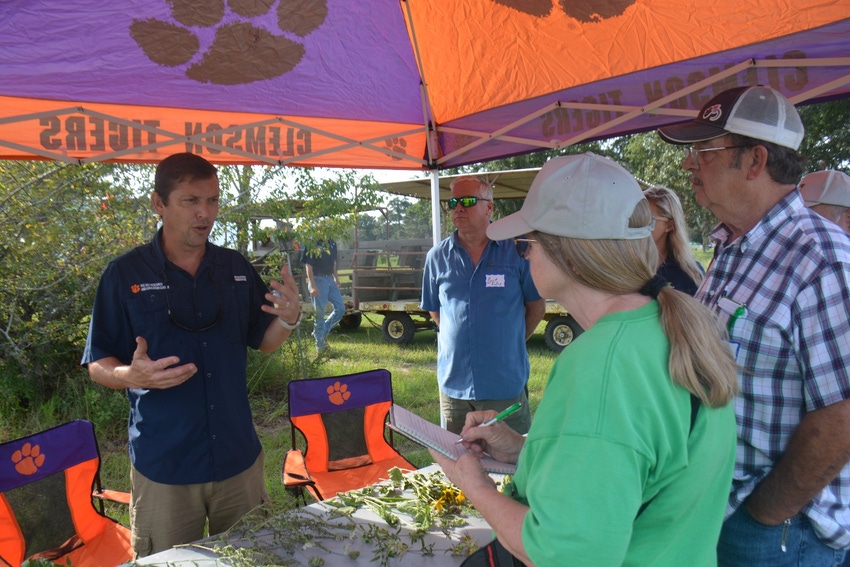
As coordinator of Clemson University’s Apiculture and Pollinator Program, Ben Powell is on a mission to enhance beekeeping in South Carolina and do all he can to enhance pollinator habitat in the Palmetto State.
At this year’s Pee Dee Research and Education Center Field Day Sept. 1 in Florence, Powell emphasized the vital need of bees and other pollinators to pollinate many of South Carolina’s most valuable crops. He also stressed the value pollinators deliver to farm operations.
He is urging farmers to do all they can to improve pollinator habitat on their farms. He encourages them to take advantage of a cost share incentive program by USDA’s National Resource Conservation (NRCS) to install a pollinator habitat on their farms.
At the field day, he discussed ongoing research at the Pee Dee Center that is evaluating a mixture of various plant species that make for a good pollinator habitat.
“Most of the plants here are probably what you would consider weeds. We don’t really know a whole lot on how you manage weeds which are now considered desirable plants and how to maintain that habitat and productivity. We planted a one-acre plot of pollinator habitat here (at the Pee Dee Research Station) and started doing treatments. We are trying to figure out what maintenance strategies maintain the diversity of the plants and the productivity of the pollinators,” Powell said.
“We will be mowing, grazing, disking, and applying herbicide. We will be grazing if we can get a couple of goats. We will see how that changes the plant community. There is a tremendous diversity of plants in there, a whole range of broadleaf plants. They will be flowering at different times to provide food for those pollinators at different points of the year,” he explained.
Powell emphasized one important incentive for farmers to create a pollinator habitat in their farm operation: Most of the pollinators do double duty. They not only pollinate crops, but they also control pests.
“I’m not talking about bees and butterflies. I’m talking about wasps and parasitoids. Many of them are parasites of some of the worst pests you have, like aphids. If you can set part of your farmland that is not in use, or maybe isn’t the most productive part of your land, then go to NRCS and get a cost share to put in some pollinator habitat, you might actually improve the pollination of your crops, but also control pests in your operation,” Powell said.
Powell emphasized that pollinator habitats should be maintained in a perennial plant state. “These are flowering plants we regrow every year or reseed every year. If you maintain your pollinator plot correctly, it should be productive from year to year to year.”
About the Author(s)
You May Also Like






